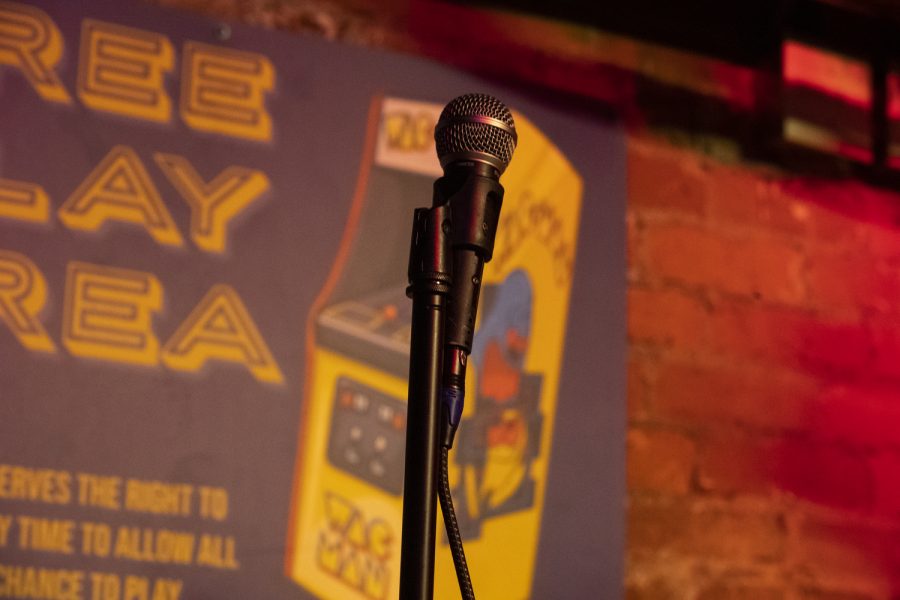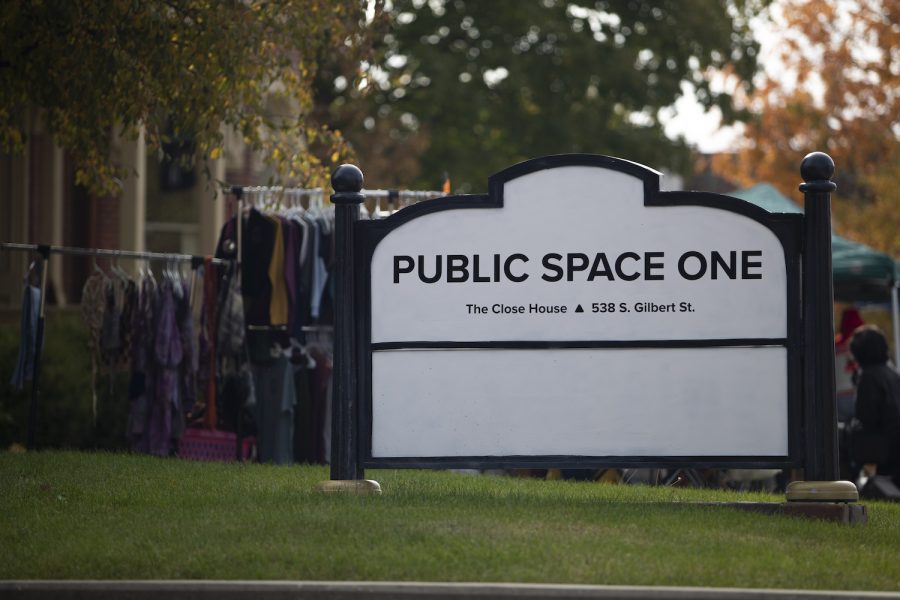Grace Rosauer lived for five days. Because of a fatal condition called trisomy 18, she was born 3½ weeks premature, weighing 4 pounds, 0.9 ounces, 16½ inches tall.
Doctors at the University of Iowa Hospitals and Clinics were able to stabilize Grace for a short time while her family shared a few moments with her.
Grace’s family will never forget the memories they have of her thanks to the Cherished Portraits Program.
“Knowing we would not have much time with her, we wanted to capture as many memories as possible with her,” said Jill Rosauer, Grace’s mother.
The Cherished Portraits Program — offered through the UIHC — provides families whose children are dealing with deadly illnesses with a priceless, long-lasting gift to remember the short-lived moments they had with their loved ones. A photographer was appointed to capture Grace with her family in her last moments. Later that evening, she passed away.
Grace was one of the many babies who died in 2012. However, her story will not be forgotten because it is held in the hearts of her family members — and hangs on the walls of the UIHC.
Portraits of children and families who have participated in the Cherished Portraits Program are displayed on the eighth floor of the UIHC near the Patient Museum and Patient Library from 6 a.m. to 10 p.m. daily.
While in labor, Rosauer was introduced to Cherished Portraits, offered through grief services at the UIHC, which provides free photo sessions for families dealing with stillbirth, newborn death, and newborns suffering life-threatening illness and unexpected deaths.
The program was established in 2007 by three UIHC staff members: Jean Reed, the director of volunteer services, Shiela Frascht, a grief-services coordinator, and Jane Wilkins, a fetal diagnosis and treatment registered nurse. The three created the program to help families deal with their losses.
“[The families] are unable to keep the deaths from occurring,” Frascht said. “So we’re helping them keep control of holding these moments back by providing them with these pictures.”
The day following Grace’s birth, her family were introduced to Frascht, who helped them arrange Grace’s the photo session with volunteer photographer Jaimy Ellis.
There are six local photographers who volunteer their time to participate in Cherished Portraits. The volunteers carry pagers 24/7 and are called by hospital volunteers nicknamed “pager angels” for immediate photo sessions.
“[The families] would not have thought of taking photos themselves, because often it happens so suddenly,” Reed said. “If they had not had the photos, these details would have been lost to them.”
The volunteer photographers provide the family with a private photo session in the patient’s room in the hospital. The portraits may include just the child or the whole family, depending on the family’s requests. The portraits are then given to the family on a disc, and the family may choose to print them.
Reed said it is sometimes very difficult for the families to look at the portraits right away.
“We recently heard from a family who took a year before they felt ready to see the portraits of their child,” she said. “After all that time passed, they wrote to say how thankful they were to have those treasured photographs.”
Emily Crall, a photographer from North Liberty who has been involved with the program for two years, found out about it through a friend who is photographer in Cherished Portraits.
“As a photographer, you don’t go into it expecting it to build onto your business,” she said. “We go into it simply wanting to help people.”
The job was not very easy at first, she said, considering the emotions present during the sessions.
“I have to remember that I can’t fix anything, because that’s for the doctors,” she said. “But I am doing what I can in a different way to help these families remember these moments.”
When Grace was 5 days old, Ellis went to Grace’s room and captured several portraits of her with her family.
Rosauer said the portraits that Ellis provided were unlike ordinary pictures.
“I took more than 600 photos over the course of her short life, but there is just something about those high-quality professional photos that cannot compare to anything else,” she said. “They are breathtaking to me and are one of the greatest gifts we were blessed with to help us memorize our time with Grace.”
The portraits taken of Grace and her family are distributed throughout the Rosauer family’s home.
A large family photo is placed above the fireplace, a framed photo of Ben (Grace’s brother) with his sister sits on his dresser, and many framed photos of Grace alone throughout the house.
“I cannot express how forever grateful I am that this program was available to us,” Rosauer said.
“I would strongly encourage anyone in a similar unfortunate circumstance to consider the Cherished Portraits program.”
During the past year, Cherished Portraits earned national recognition from the American Hospital Association. Cherished Portraits was among four programs from across the United States to receive a Hospital Award for Volunteer Excellence from the hospital group earlier this year in Washington, D.C. Also this year, Cherished Portraits received the Health Care Hero Award for volunteers from the Corridor Business Journal. Additionally, Project Art is sponsoring the photo exhibit in the Patient and Visitor Activities Center.






